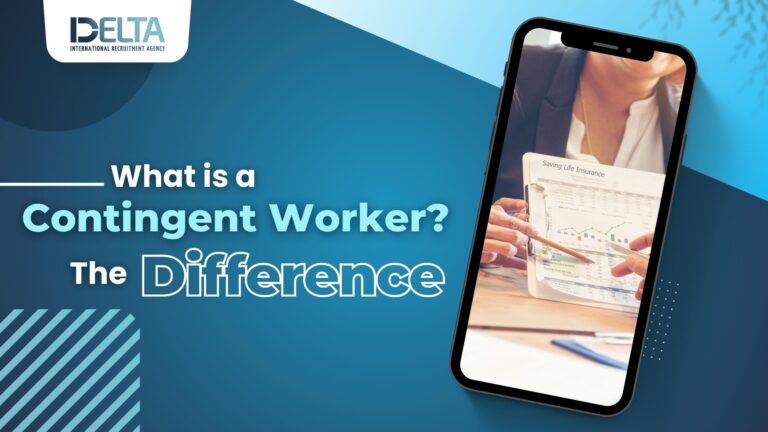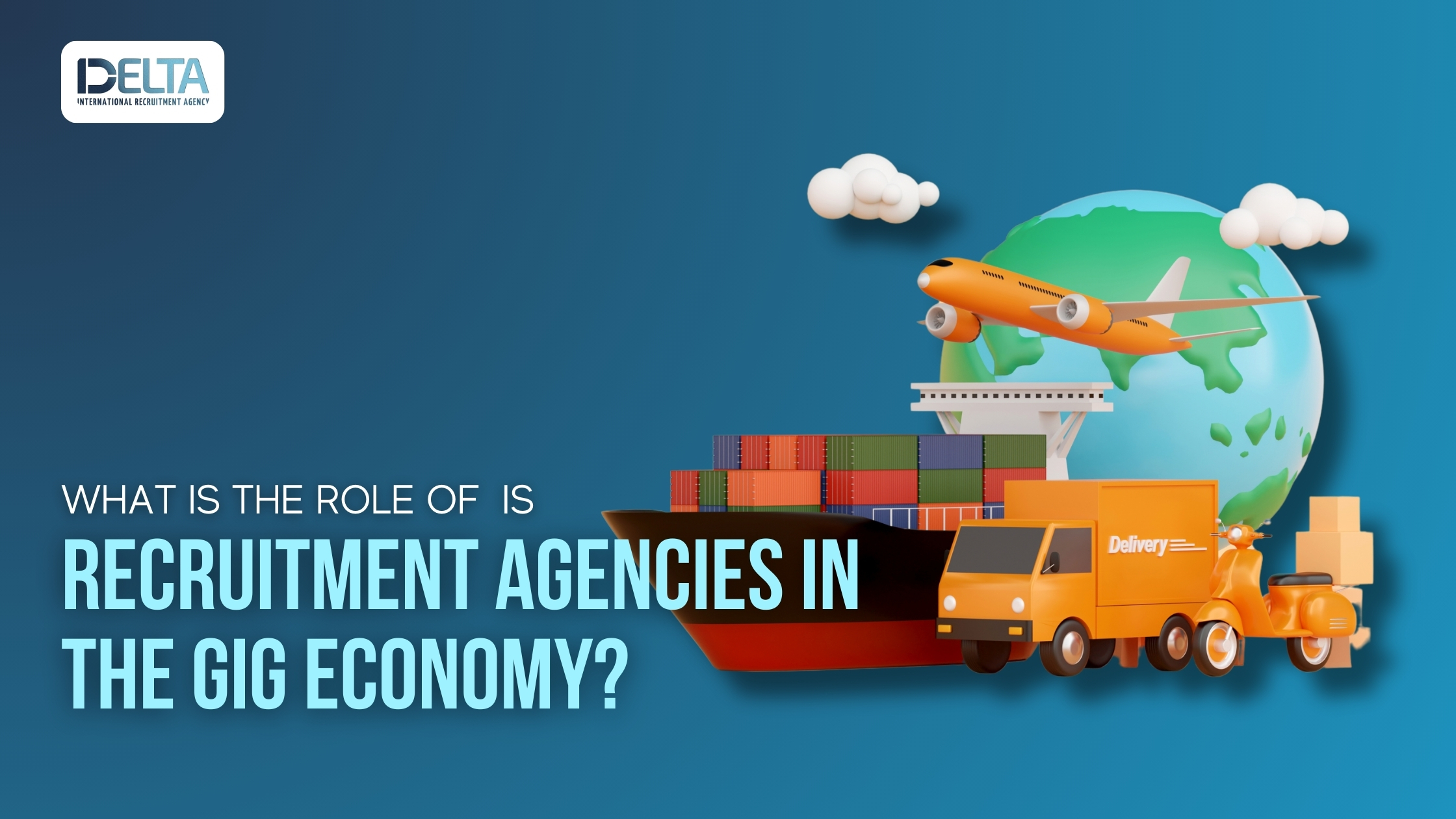In HR Industry, recruiters should must be familiar with most term while recruiting and staffing. In this article, we find ourselves at the crossroads of workforce intricacies a different worker type. We will mainly cover what “contingent worker” term mean and how it is different from other types of workers.
Let us start our exploration with:
What are Contingent Workers?
Contingent workers engage with companies or individuals, providing their expertise either remotely or on-site, typically on a project-by-project basis. These individuals are distinguished by their high level of skill and are contracted to fulfill specified tasks delineated under a Statement of Work (SOW) agreement. Upon successful completion of the assigned project, contingent workers recruitment companies conclude their tenure but remain subject to potential reengagement should subsequent projects necessitate their skill set.
It is pertinent to note that contingent workers do not assume the status of permanent employees within the organizational framework. Consequently, the associated company and business owner bear no obligation to provide them with sustained or continuous employment.
Mostly Contingent workers are known by these names, including:
- Freelancers
- Contractors
- Gig Workers
- Non-payroll Workers
- Flexible Labors
- Temporary Staff
- Individual Resources
- Agency Workers
- Outsourced Workforces
Image Source: avature.net
How Contingent Workers Differ from Regular Employees
They some key difference between Contingent workers and regular employees. Here are some key differences:
Project Focus: Contingent workers and regular employees have different focuses. Con Workers engage in specific projects, while regular employees handle daily tasks and maintain ongoing roles.
Work Schedule: Con Workers operate on a contract schedule, emphasizing project timelines rather than a daily work routine. In contrast, regular employees adhere to a consistent daily schedule, working with the company every day.
Training and Skills: Contingent workers are recruited for their specific skills and expertise, without receiving on-the-job training. Regular employees, on the other hand, often undergo training and may possess a broader skill set.
Payment Structure: The compensation structure also distinguishes the two. Contingent workers receive payment based on the completion of a project, as opposed to regular employees who typically receive a salary or hourly wages.
Benefits: Employee benefits further highlight the contrast. Con Workers do not enjoy benefits such as retirement plans or healthcare, while regular employees commonly receive these perks as part of their employment package.
Taxation: Taxation procedures differ as well. Con Workers are responsible for filing their income tax, whereas regular employees typically have income tax deducted by the company’s payroll.
Image Source: Capterra
Benefits of Hiring Contingent Workers: Unlocking Strategic Advantages
Hiring contingent workers comes with a set of strategic benefits that can significantly impact your business. Let’s break down these advantages:
1. Cost Savings:
Contingent workers bring financial advantages. By hiring them, you can cut costs by:
- Not providing health or employee benefits.
- Avoiding payments for sick leaves, vacation, and overtime.
- Streamlining administrative costs related to payroll and HR.
2. Tax Responsibilities:
Workers handle their own taxes, relieving the company from the duty of withholding and depositing payroll taxes. Additionally, there’s no need for employer contributions to Social Security and Medicare Taxes.
3. Flexibility:
In a dynamic market, companies need to be flexible. Workers offer the ability to adapt quickly to market demands, providing resources as needed.
4. Hassle-free Onboarding:
Operating with a contingent workforce simplifies hiring decisions. Onboarding time is swift, skipping the lengthy process of recruitment, orientation, and training. Hiring workers involves searching online, liaising with staffing agencies, negotiating rates, and meeting your specific requirements.
5. Larger Talent Pool:
Whether sourced from a staffing agency or through internal efforts, workers open up access to a diverse talent pool. This is particularly beneficial for short project-based work or tasks requiring skills not present in your regular workforce.
6. Filling Skills Gap:
Contingent workers provide a solution for specific skills required for a project. Employers can tap into varied expertise and bridge the skills gap that might exist internally.
7. Shift of Duties:
Organizations engaging staffing agencies for contingent workers transfer the burden of hiring onto these agencies. This shift in responsibility includes mitigating risks associated with a contingent workforce.
8. New Perspective:
External experts, like workers, bring fresh perspectives to daily operations, injecting new ideas into the organization’s strategic direction. This outside viewpoint can be valuable for business development.
Disadvantages of Hiring Contingent Workers
In this exploration, we delve into the disadvantages of hiring contingent workers, ranging from issues of control and loyalty to tax complexities and eligibility for government programs. Understanding these aspects is crucial for employers aiming to make informed decisions and effectively manage their workforce in an ever-evolving landscape.
- Less Control: Contingent workers operate on their own schedule, which means they set their own hours for projects. If you have specific time constraints or availability requirements, communicate them upfront. Lack of control over their work place and time management can be a drawback for some employers.
- Worker Misclassification: Misidentifying the relationship with a contingent worker can lead to severe consequences, including hefty penalties for the company and back payments to the workers. It is crucial to accurately classify the employment relationship to avoid legal and financial issues.
- Loyalty Concerns: Contingent workers may prioritize their commitment to the specific project rather than to your company. Since they often work with multiple organizations simultaneously, their loyalty tends to be project-focused rather than organization-focused.
- Tax Risks: Hiring Workers introduces tax complexities. Incorrectly labeling an employee as a contingent worker can result in fines and penalties, along with potential issues related to miss employee taxes. Updating tax information is necessary if considering transitioning a contingent worker to a full-time employee.
- Behavior Risks: The temporary nature of contingent work makes organizations susceptible to unethical behavior, such as frauds that can harm the company’s reputation or financial fraud targeting invoice payroll processes.
- Ineligibility for Government Programs: Companies employing full-time workers often benefit from government programs during challenging times. However, businesses relying heavily on workers may not meet eligibility requirements for such programs, potentially missing out on essential support.
In Conclusion:
Despite the availability of talented contingent workers, the hiring process can become challenging due to the abundance of candidates. Utilizing technology, like an applicant tracking system such as Delta International Recruitment Agency, can streamline the recruitment process, making it more manageable for HR managers and recruiters.
Tips of Jobs Seekers: What is a Contingent Worker? The Difference




